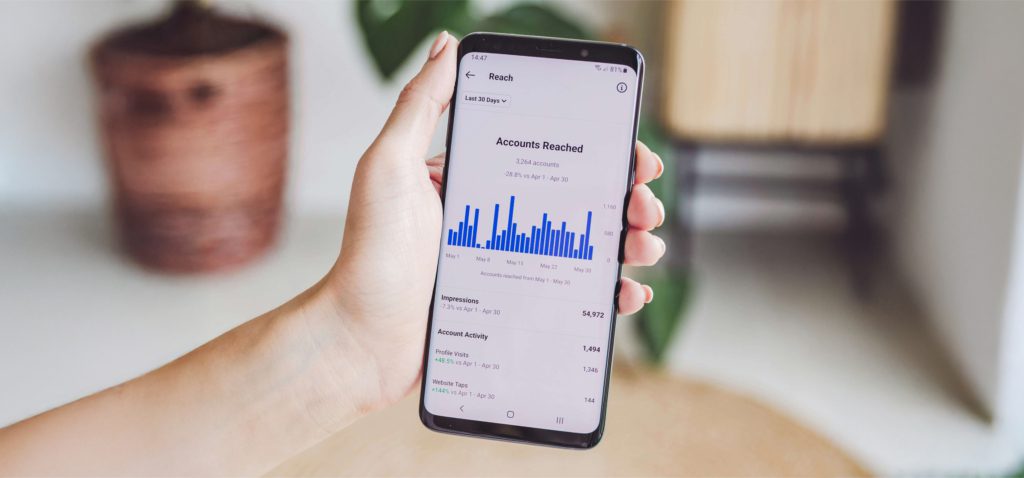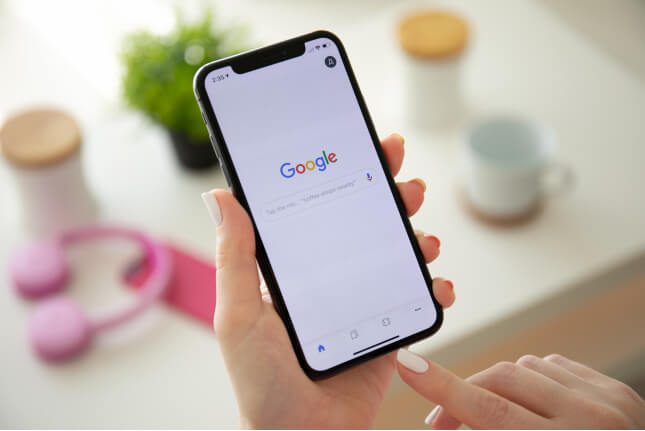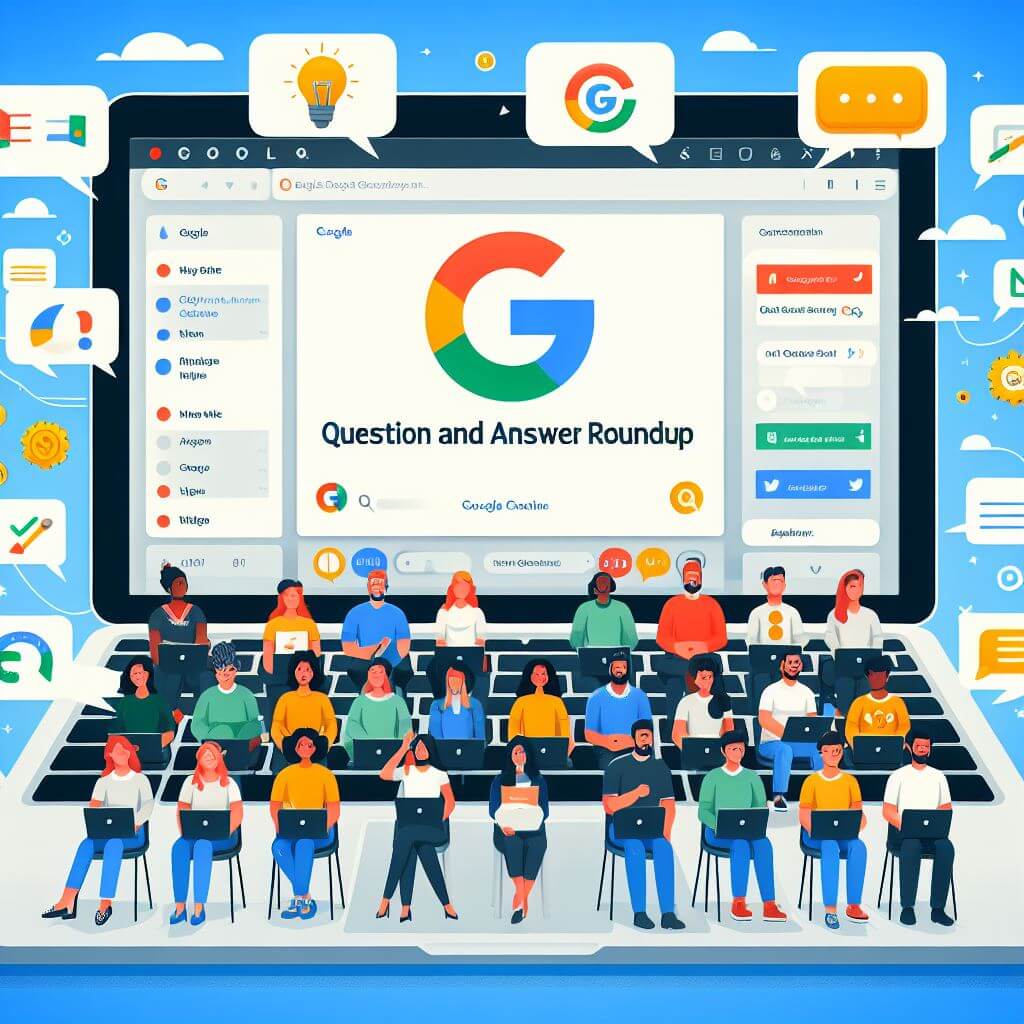PPC has become an increasingly popular branch of digital marketing for many brands, and it is easy to see why.
There are many benefits to investing in PPC, including detailed performance metrics, flexible campaigns, and immediate results.
However, it is important to understand the basics first…
What does PPC mean?
The term ‘PPC’ stands for pay-per-click. As the name indicates, this digital marketing model sees advertisers pay a fee each time a user interacts with their ad.
You will often see examples of PPC marketing on search engines, as indicated by the small ‘Ad’ ‘or ‘Sponsored’ tag located next to the result.

All PPC campaigns typically begin with businesses deciding to create adverts based on their target market.
The person – or people – overseeing the campaign will then decide on what keywords or phrases they would like their ad to appear for. They will reach a final decision based on comprehensive keyword research.
Afterwards, they will bid on these keywords. The amount they bid reflects the amount they will need to pay when a user clicks on their ad, otherwise known as ‘cost per click’.
Although not to solely be relied upon, PPC marketing can be a great addition to your digital marketing strategy.
However, as with many aspects of digital marketing, PPC has garnered many myths, causing businesses to either use the marketing model ineffectively or question whether they need it at all.
Continue reading to discover six common myths about PPC and why you should disregard them.
6 common PPC myths
1. PPC is too expensive
This is perhaps the most common misconception of PPC marketing. People may say this, but that is probably because they are not managing their budget effectively!
While PPC does come with an initial investment, one of the main benefits is that you are in complete control of setting your budget and what it is spent on.
Unlike other methods of advertising where you will pay a fee for your ad placement, regardless of whether it is performing well, PPC only requires you to pay once a user has clicked on your ad. This ensures you only pay for actual engagement.
If you are working with a smaller budget but want to get the most out of your PPC marketing efforts, it is worth bearing these handy tips in mind:
- Set realistic budgets – you will need to consider how much you can afford to pay towards both your bid strategy and your daily budget.
- Target long-tail keywords to appear in more specific searches
- Ensure the copy in your ads and campaigns are relevant to your chosen keywords
- Use location targeting so your ads are appearing for your target audience in locations where your services or products can be purchased
Ultimately, your PPC campaign should be built on achievable targets, clear goals, careful planning, and making the most of your budget – all of which will help with driving results and giving you a decent return on investment.
2. Targeting generic keywords will give us a wider reach
While using generic keywords can help you reach a wider audience, this isn’t necessarily a good thing for your PPC marketing efforts.
Generic keywords are vague, and although they usually have a high search volume, this also brings higher competition for terms that don’t necessarily fit the same search intent that your target audience has.
So, while it might appear that your ad is reaching a wider audience and getting a lot of clicks, you could be paying that click per cost fee for users who are not relevant to your brand and won’t invest in your services or products.
3. The only metric that matters is CTR
Click through rate is a very important metric when it comes to measuring the performance of your PPC campaign; however, it is by no means the only factor you should be focusing on.
The following metrics are equally as important for ensuring a successful and effective search engine marketing campaign:
- Conversion rate – allows you to see how many users have clicked on your ad and carried out the desired action
- Cost per conversion – following on from the above, CPC enables you to see the cost for users carrying out the action
- Cost per click – helps you manage your budget and see how much you’re spending on clicks for your ads
- Time spent on site – helps you track how users are interacting with your website and where they have spent the most time
- Bounce rate – can track how often users are leaving the site and identify any potential issues with the quality of your content or technical issues
- Quality score – can track your score to see where your ad is appearing on the search engine results page and identify any areas for improvement
- Return on ad spend – measures your campaign’s profitability vs. how much was spent
4. PPC doesn’t matter at night
Perhaps one of the more bizarre PPC marketing myths is the assumption that after a certain time users just stop browsing the web or clicking on ads all together. Obviously, this is not the case!
If anything, your audience has more time to browse in the evenings after a day of work, school, and errands – so it is a prime time to target them with your well-crafted ads.
It is also important to remember that if your PPC campaigns are targeting users in other countries, then they will be in different time zones.
This means you will still be converting and achieving clicks throughout the night.
5. My PPC campaign can run itself
Businesses often believe that, after investing a lot of time, money, and effort into PPC marketing, they can leave the campaign to successfully run itself – but this is far from true. Your campaign has been so effective because of all your input, and it will struggle to maintain the same quality of performance without you.
Leaving your campaign could end up costing you more money than you initially spent on it in the first place. It is important to consider what could change if you were to leave your campaign:
- Keyword performance
- Content freshness
- Search trends
- Increased costs
- Competitor advantage
- Lack of return on investment
- Decrease in quality score
- Ad position changes
- Wasted money
If you don’t have the time to dedicate to continue monitoring your campaign, it might be worth enlisting the help of a specialised PPC management team.
6. It’s only worth focusing your PPC marketing efforts on Google
While Google certainly is a lucrative place to carry out your PPC marketing, it isn’t the only search engine where you can carry out a successful campaign.
Other search engines such as Microsoft Bing and Yahoo are also well worth your time and effort as they still have a large user base with less competition than Google.
It is also worth considering paid social media opportunities on platforms such as Facebook and Instagram, where you can take advantage of Meta Ads’ vast reach and thorough audience targeting which is based on demographics, interests, and location.
Alternatively, YouTube is a popular choice for many businesses, as not only is it cost-effective, but it focuses more on the storytelling aspect of advertising and is great for improving brand awareness and engagement.
Need help with your PPC marketing?
Now that you know the truth behind these common PPC myths, if you would like some help with developing your PPC campaign, get in touch with us today to see how we can help.
Alternatively, secure your place at one of our Free Acquisitions Workshops. You can benefit from free in-depth advice from our marketing experts, receive a personalised action plan, and free resources to help you along the way.












